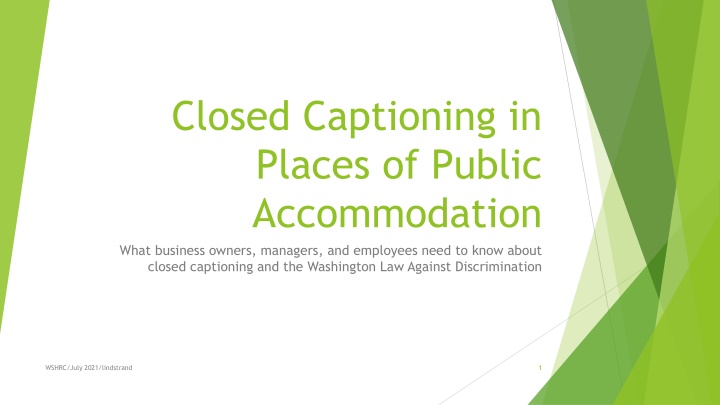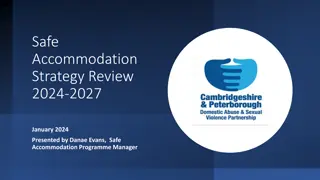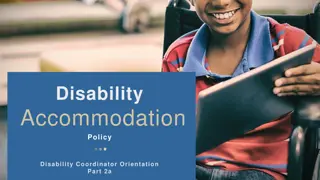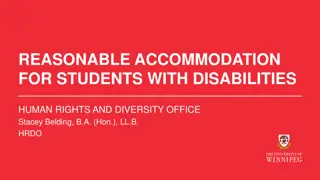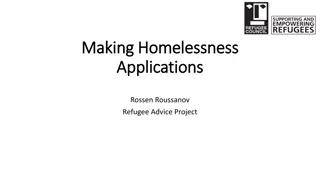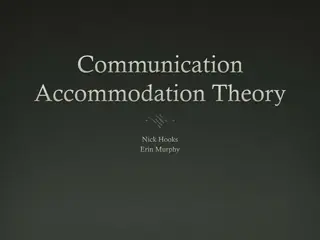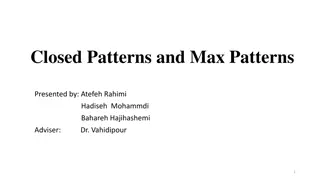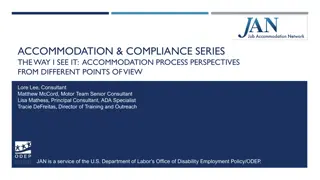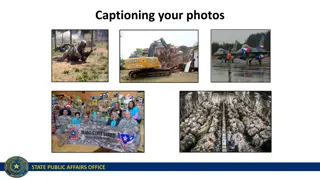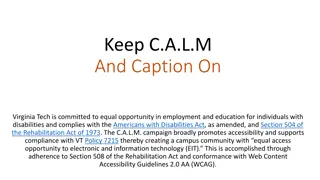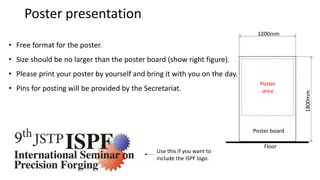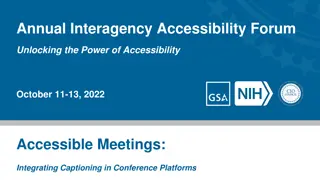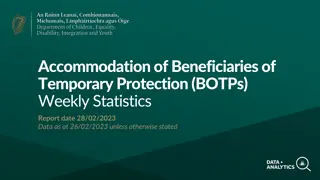Washington Law on Closed Captioning in Public Accommodation
The Washington Law Against Discrimination now mandates places of public accommodation to provide closed captioning on televisions in public areas. Businesses open to the public with TVs must comply by October 23, 2021, following exceptions and guidelines outlined in the law.
Download Presentation

Please find below an Image/Link to download the presentation.
The content on the website is provided AS IS for your information and personal use only. It may not be sold, licensed, or shared on other websites without obtaining consent from the author.If you encounter any issues during the download, it is possible that the publisher has removed the file from their server.
You are allowed to download the files provided on this website for personal or commercial use, subject to the condition that they are used lawfully. All files are the property of their respective owners.
The content on the website is provided AS IS for your information and personal use only. It may not be sold, licensed, or shared on other websites without obtaining consent from the author.
E N D
Presentation Transcript
Closed Captioning in Places of Public Accommodation What business owners, managers, and employees need to know about closed captioning and the Washington Law Against Discrimination WSHRC/July 2021/lindstrand 1
There is a new law requiring closed captioning The Washington Law Against Discrimination now specifically requires places of public accommodation to provide closed captioning on televisions in public areas The State Legislature passed and the Governor signed Senate Bill 5027 during the 2021 Legislative Session, putting this requirement into the law The law goes into effect on July 25, 2021 Businesses must be in compliance with this law by October 23, 2021 WSHRC/July 2021/lindstrand 2
Businesses that must be in compliance: Any business that is open to the public (clients, customers, patients, etc.) That has a television or televisions that are located in the public areas of the business These businesses must provide closed captioning on the televisions that members of the public can view WSHRC/July 2021/lindstrand 3
Exceptions to the rule: Where there are multiple televisions, up to half do not have to display closed captioning but those that do not display closed captioning must clearly show they are on mute/have no sound When a television receiver is not technologically able to display closed captioning, the requirement does not apply When another state or federal law exempts the business from the closed captioning requirement, that law would supersede this law WSHRC/July 2021/lindstrand 4
If the business sells televisions: At least one closed captioned television must be available for customers to view WSHRC/July 2021/lindstrand 5
What if someone asks that the closed captioning be turned off? If that person is vision impaired, and requests that the closed captioning be turned off so they can see the screen better, the business should turn off the closed captioning while the person is present at the business If the person simply does not like the closed captioning, the business can explain that it must be on because of a law that helps people who are hard of hearing WSHRC/July 2021/lindstrand 6
What does the closed captioning have to look like? It must be white text, with a black background, and in a style and font that is readable to someone who has low vision This is an example of how closed captioning should appear WSHRC/July 2021/lindstrand 7
How does a business get ready for the new requirement? Check all of the televisions to see if they are able to display closed captioning There is no requirement to replace televisions that are not technologically capable of displaying closed captioning Remember or make a note of which televisions cannot display closed captioning, in case someone makes a complaint Make sure that all of the televisions that are required to display closed captioning do so by October 23, 2021 If there are multiple televisions, up to half of them do not have to display closed captioning. Those televisions must be on mute or have no sound, and the television must clearly show it is on mute or has no sound. WSHRC/July 2021/lindstrand 8
Enforcement The WA State Human Rights Commission (WSHRC) enforces this law If there is a complaint, the WSHRC may visit the business to view the televisions to corroborate the complaint If there is a violation, the WSHRC will issue a notice of the violation and of a possible $75 fine, and will provide information on how to cure the violation The number of violations is calculated on a per business and per day basis, not on a per television set basis The business can cure the violation by turning on the closed captioning on all televisions that are required to have it, within 30 days of when the business receives the notice of violation, and continuing to display closed captions If the violation is cured in this manner, there will be no fine and the violation is dismissed If the business fails to cure the violation, there will be a fine of $75. A second violation will result in a fine of $150 WSHRC/July 2021/lindstrand 9
Questions? Contact the WA State Human Rights Commission at policy@hum.wa.gov See our website a www.hum.wa.gov for a guidance paper with further information on this topic WSHRC/July 2021/lindstrand 10
